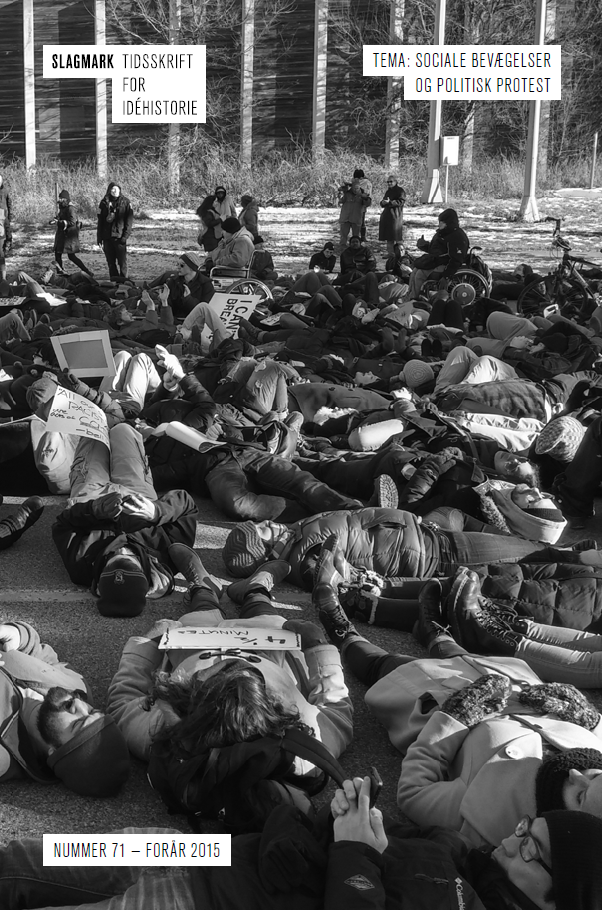Twitter-revolutioner og fejlslagne protestbevægelser:
Om sociale bevægelser, nye medier og social forandring
DOI:
https://doi.org/10.7146/sl.v0i71.107315Keywords:
Social change, Social media, Protest, Alternative media, Mediation, Social theoryAbstract
This article explores the interesting connection between social movements and new social media also referred to as web 2.0. It is argued that the public as well as parts of the scientific debate about the impact of new media on social change is to a large degree dominated by two rigid camps, namely Internet-utopians on the one side and Internet-sceptics on the other side. Both positions tend to degenerate into technological determinism. Furthermore, they ignore the long tradition for the critical study of alternative media and their role as critical and oppositional communication tools for social movements. In order to analyse how social movements challenge dominant and hegemonic worldviews, the article calls for a socially oriented media theory with a sensibility for analytical concepts and frameworks. Such a theoretical and contextual framework can be used in order to produce empirically based insights into the relation between protest movements, social media use and actual political change.
References
Bennett, W. L. & Segerberg, A. (2012). The Logic of Connective Action. Information, Communication & Society, 15(5), 739-768. doi:10.1080/1369118X.2012.670661
Caiani, M. & Parenti, L. (2009). The Dark Side of the Web: Italian Right-wing Extremist Groups and the Internet. South European Society and Politics, 14(3), 273-294. doi:10.1080/13608740903342491
Carr, N. (2010). The Shallows: What the Internet is Doing to our Brains. New York, NY: W.W. Norton & Co.
Castells, M. (1996). The Rise of The Network Society. Oxford: Blackwell.
Christensen, C. (2009, juli). Iran: networked dissent. Le Monde Diplomatique. Hentet fra http://mondediplo.com/blogs/iran-networked-dissent
Christensen, C. (2011). Twitter Revolutions? Addressing Social Media and Dissent. The Communication Review, 14, 155-157. doi:10.1080/10714421.2011.597235
Copsey, N. (2003). Extremism on the net: the extreme right and the value of the Internet. I R. Gibson, P. Nixon & S. Ward (red.), Political Parties and the Internet: Net gain? (s. 218-231). London: Routledge.
Couldry, N. (2012). Media, Society, World: Social Theory and Digital Media Practice. Cambridge: Polity Press.
Fuchs, C. (2010). Alternative Media as Critical Media, European Journal of Social Theory, 13(2), 173-192. doi:10.1177/1368431010362294
Downing, J. (2008). Social Movement Theories and Alternative Media: An Evaluation and Critique. Communication, Culture & Critique, 1, 40-50. doi:10.1111/j.1753-9137.2007.00005.x
Garrett, R. K. (2006). Protest in an Information Society: a review of literature on social movements and new ICTs. Information, Communication & Society, 9(2), 202-224. doi:10.1080/13691180600630773
Gibbs, P. L. & Hamilton, J. (2001). Alternative Media in Media History. Media History, 7(2), 117-118. doi:10.1080/13688800120092192
Giddens, A. (1990). The Consequences of Modernity. Cambridge: Polity Press.
Gladwell, M. (2010, 4. oktober). Small Change. Why the Revolution will not be Tweeted. The New Yorker. Hentet fra http://www.newyorker.com/magazine/2010/10/04/small-change-3
Harvey, K. (2014). Encyclopedia of Social Media and Politics: Vol. 1. London: Sage.
Hodge, N. (2009, 4. august). Inside Moldova’s Twitter Revolution. Wired Magazine. Hentet fra http://www.wired.com/2009/04/inside-moldovas/
Jeng, I. (2011, 8. februar). Retweet Revolutionen. Social medie-revolution i Egypten. Kommunikationsforum. Hentet fra http://www.kommunikationsforum.dk/artikler/retweet-revolutionen
Jurgenson, N. (2012). When Atoms Meet Bits: Social Media, the Mobile Web and Augmented Revolution. Future Internet, 4, 83-91. doi:10.3390/fi4010083
Keen, A. (2008). The cult of the amateur: How blogs, MySpace, YouTube, and the rest of today’s user-generated media are destroying our economy, our culture, and our values. New York, NY: Doubleday.
Lanier, J. (2010). You Are Not a Gadget: A Manifesto. New York, NY: Vintage Books.
Lievrouw, L. (2011). Alternative and Activist New Media. Cambridge: Polity Press.
Loader, B. D. (2008). Social Movements and New Media. Sociology Compass, 2(6). doi:10.1111/j.1751-9020.2008.00145.x
Morozov, E. (2011). The Net Delusion: How Not to Liberate the World. London: Penguin Books.
Morozov, E. (2013). To save everything, click here: Technology, solutionism and the urge to fix problems that don’t exist. London: Allen lane.
Mungiu-Pippidi, A. & Munteanu, I. (2009). Moldova’s ”Twitter Revolution”. Journal of Democracy, 20(3), 136-142. doi:10.1353/jod.0.0102
Nielsen, H. K. (2001). Kritisk teori og samtidsanalyse. Aarhus: Aarhus Universitetsforlag.
Papic, M. & Noonan, S. (2011, 3. februar). Social Media as a Tool for Protest. Stratfor Global Intelligence. Hentet fra
http://www.stratfor.com/weekly/20110202-social-media-tool-protest#axzz3KpQ8wtEK
Shirky, C. (2011). The Political Power of Social Media. Foreign Affairs, 90(1), 28-41.
Smith, T. (2009). The Social Media Revolution. International Journal of Market Research, 51(4) 559-561. doi:10.2501/S1470785309200773
Sullivan, A. (2009, 13. juni). The Revolution Will Be Twittered. The Atlantic. Hentet fra http://www.theatlantic.com/daily-dish/archive/2009/06/the-revolution-will-be-twittered/200478/
Thompson, J. B. (1995). The Media and Modernity: A Social Theory of the Media. Redwood City, CA: Stanford University Press.
White, M. (2009, 18. marts). Abandon Point and Click Activism. Adbusters. Hentet fra https://www.adbusters.org/blogs/blackspot_blog/abandon_point_and_click_activism.html





